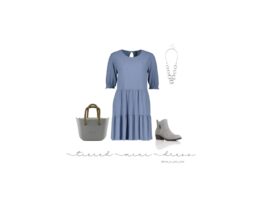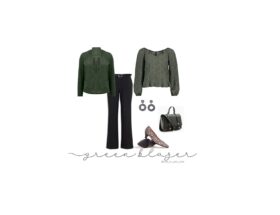
Conscious Fashion
As a personal stylist, I believe it is my responsibility to not only help my clients look good but also feel good about their choices. In recent years, there has been a growing awareness of the impact that the fashion industry has on the environment, and as a result, more people are turning to conscious fashion. So, what is conscious fashion, and why is it important?
Conscious fashion is a movement that seeks to reduce the environmental and social impact of the fashion industry. It is about making thoughtful and informed choices about what we wear and where we shop. This means choosing clothing that is made from sustainable materials, produced in an ethical and responsible manner, and is designed to last.
There are many reasons why conscious fashion is important. Firstly, the fashion industry is one of the biggest polluters in the world. The production of clothing requires large amounts of water, energy, and resources, and often involves the use of toxic chemicals. This has a significant impact on the environment, from air and water pollution to deforestation and soil degradation.
Secondly, the fashion industry is known for its poor labour practices. Many garment workers are paid low wages, work long hours, and are subject to unsafe working conditions. By choosing to support brands that prioritize ethical and fair labour practices, we can help to ensure that workers are treated with the dignity and respect they deserve.
Finally, conscious fashion is important because it encourages us to consume less and choose quality over quantity. Fast fashion has created a culture of disposable clothing, where we buy items cheaply and discard them just as quickly. This not only puts a strain on the environment but also perpetuates a cycle of exploitation and inequality within the industry.
So, how can we embrace conscious fashion in our daily lives? Here are some tips:
- Choose sustainable materials: Look for clothing made from natural, organic, or recycled materials. These fabrics are often more durable, require less water and energy to produce, and are biodegradable.
- Shop from ethical brands: Research brands to find those that prioritize fair labour practices, and choose to support them. This helps to create demand for ethical fashion and sends a message to the industry that we care about these issues.
- Invest in quality pieces: Instead of buying cheap, disposable clothing, invest in quality pieces that are designed to last. These items may cost more upfront but will save you money in the long run and have a lower environmental impact.
- Repurpose and recycle: Instead of throwing away old clothing, repurpose it by turning it into something new or donating it to a charity. When it is time to replace clothing, recycle it by donating it to a textile recycling program.
- Extend clothing lifespan: Take the time to properly care for your clothing items. Follow the care instructions on the labels, mend small damages, and store your clothes appropriately. By doing so, you can extend the lifespan of your garments, reducing the need for frequent replacements. Embracing conscious fashion means valuing the resources and craftsmanship that went into creating your clothes and making them last as long as possible. Also consider buying second-hand, thrifted items instead of new.
In conclusion, conscious fashion is about making thoughtful and informed choices about what we wear and where we shop. By choosing sustainable materials, supporting ethical brands, investing in quality pieces, and repurposing and recycling old clothing, we can all do our part to reduce the environmental and social impact of the fashion industry. As a personal stylist, I encourage my clients to embrace conscious fashion as a way to look and feel good while also making a positive impact on the world around us.








